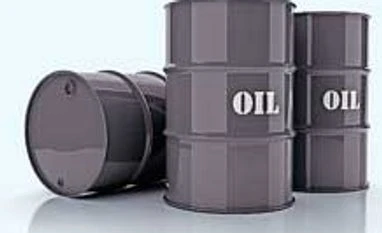The Bank of Japan kept its policy unchanged as expected, awaiting a new leader who is seen to favour bolder measures to try to end deflation, while the European Central Bank (ECB) meets later in the day.
ECB President Mario Draghi will address the press at 1330 GMT, with the focus on the outlook for the economy following recent dismal numbers. Key U.S. nonfarm payroll data and China's trade figures are due in the next few days.
"We have a busy end of the week as far as macroeconomic data is concerned; the oil markets are watching out for those," said Ben le Brun, an analyst at OptionsXpress in Sydney.
Front-month Brent futures were 2 cents lower at $111.04 per barrel by 0811 GMT, after trading in a broad range of $110.46-$112.23 in the previous session.
U.S. crude rose 5 cents to $90.48 per barrel, after weakening in the previous session following higher than expected inventory numbers.
U.S. crude stocks rose by 3.83 million barrels in the week to March 1, the Energy Information Administration said in its weekly report. Analysts had forecast a 500,000-barrel build.
Inventories rose as refinery utilization fell during the winter plant maintenance season and in spite of a drop in imports to the world's biggest oil consumer.
More From This Section
"The fact that U.S. crude stocks surged nearly eight times more than expected does point to weaker demand, which will weigh on the WTI," le Brun said, referring to the Western Texas Intermediate, the benchmark U.S. crude.
The weak market tone was aggravated by a stronger U.S. currency, which makes dollar-denominated commodities more expensive outside the United States. The dollar index is trading at its highest in more than six months.
"The key price-driving factor (for oil markets) over coming days is likely to remain dollar moves rather than the latest inventory data," BNP Paribas analysts said in a report.
Economic data will continue to remain in focus, say traders.
The Bank of Japan may introduce new stimulus measures at its next meeting on April 3-4, when Asian Development Bank President Haruhiko Kuroda, a vocal advocate of aggressive easing, is expected to have taken over as governor.
The ECB is expected to hold its interest rates at a record-low 0.75 percent and keep its growth and inflation forecasts largely unchanged, although Draghi may be questioned on whether an unused bond programme dubbed Outright Monetary Transactions (OMT) could soon be deployed.
In China, the all-important trade data for February will be released on Friday, and while export and import growth are expected to be in double digits, investors will be closely watching for crude demand numbers from the world's second-biggest oil consumer.
)